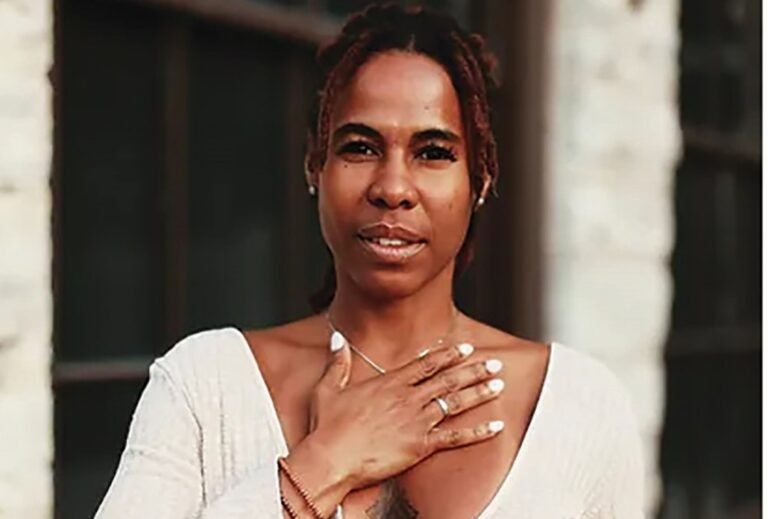
In Black communities, people seeking mental health services face barriers such as stigma, access, and lack of diversity among providers. Anissa Keyes has spent more than a decade breaking down these barriers while supporting Black businesses.
Born and raised in North Minneapolis, Keyes earned a degree in social work from the University of Minnesota. She opened her private practice in 2012. Influenced by her father, who has struggled with addiction throughout her life, “I really had a heart to serve others,” she says. “I just wanted to support services that are unlikely to be adopted by traditional services.”
She started by visiting places that served the homeless and chemically dependent and asked to meet with their clients. “It really lit a fire,” she says. “We had a lot of people saying, ‘Please come and help our clients.'”
Traditional mental health services take place in office spaces with few clinicians or therapists of color. “Black and brown people, disenfranchised communities, marginalized communities don’t have to be in those spaces,” Keyes said. There she met people in crisis at community centers, churches and even her own home.
Although Keyes spent several years breaking down the stigma, most of the clients she approached made her feel welcome. “I think people want support,” she says. “Maybe they want it done on their terms, in a way that makes them feel considered and part of the process.”
– Advertisement –
After conducting a needs assessment, Arubah Emotional Health typically refers clients to organizations that require additional support, such as medication, life skills, food, or housing.
“We’re going to make sure we don’t become another liquor store or another check-cashing place or anything like that.”
Alba’s clientele has doubled as the killing of George Floyd and the pandemic have combined to force many people of color to consider their need for mental health support. With its growth, it needed more space to provide its services. Keyes purchased the 5,000-square-foot building on the 52nd.n.d. and Bryant of North Minneapolis.
“It became a healing center that integrated traditional outpatient treatment services and Indigenous practices all under one roof.” Because the building was relatively easy to purchase, “there was a false sense of security.” .
She says she didn’t think twice when she considered buying a second building for the Northside Epicenter, the former Camden Park State Bank building. She envisioned her 3000 square meter space on the third floor as Aruba’s headquarters.
– Advertisement –
The mother of five children, ranging in age from 4 to 26, says: It is different for her to have ownership of the land. This will allow me to diversify my abilities and leave a legacy for my children. ”
But sadly, three months after signing the contract, a shooting incident occurred at the barber shop located in the building. A 23-year-old man died while cutting his 2-year-old son’s hair. The child’s mother was also shot and injured.
“I don’t think I was focused on the right things when I started the deal,” Keyes says, but the young man’s death changed her focus. Her real estate agent told her it was a good time to back out of her contract, considering she would likely lose the tenant due to safety concerns. Keyes continued her advance.
The restaurant owner, who owned the most prime space, served notice the day after closing the building. “I’m a believer. It’s at the core of who I am,” Keyes says. “So all of this was part of God’s plan. I’m confident in that.” At the start of the process, he said, the building was at 95 percent occupancy. Within six months of closing, he lost 65 percent of his tenants.
Here’s her answer: “We’re going to fill this with Black businesses,” she says. “We’re going to make sure it doesn’t become another liquor store or another check cashing place or something similar.
– Advertisement –
“I didn’t have these grand plans in mind beforehand,” she says. “It came about through evolution, a kind of organic change. But this pain was what triggered the shift to push everyone out and allow me to create that space.”
Currently, six businesses owned by Black women occupy the building, including a school that offers CNA classes. Services offered include plant-based restaurants, compounding pharmacies, and skills to help men obtain entry-level employment.
Keye’s continues to plan for the future with Summerfest featuring gospel concerts, carnivals, and literacy events this summer, all to be held at Northside Epicenter.
“If I had the influence and power and ownership to change this community, it could be something bigger than me bringing Alba here,” she says. “We’re going to drive what that corner looks like aesthetically and emotionally…and we’re going to honor Black bodies.”
The Northside Epicenter is located at 705 N. 42nd Ave. in Minneapolis. Abruah-The Healing Center is located at 5201 Bryant Ave. N. in Minneapolis.
– Advertisement –
Support Black Local News
Help amplify Black voices by donating to MSR. Your contributions enable important coverage of issues affecting our community and enable authentic storytelling.


